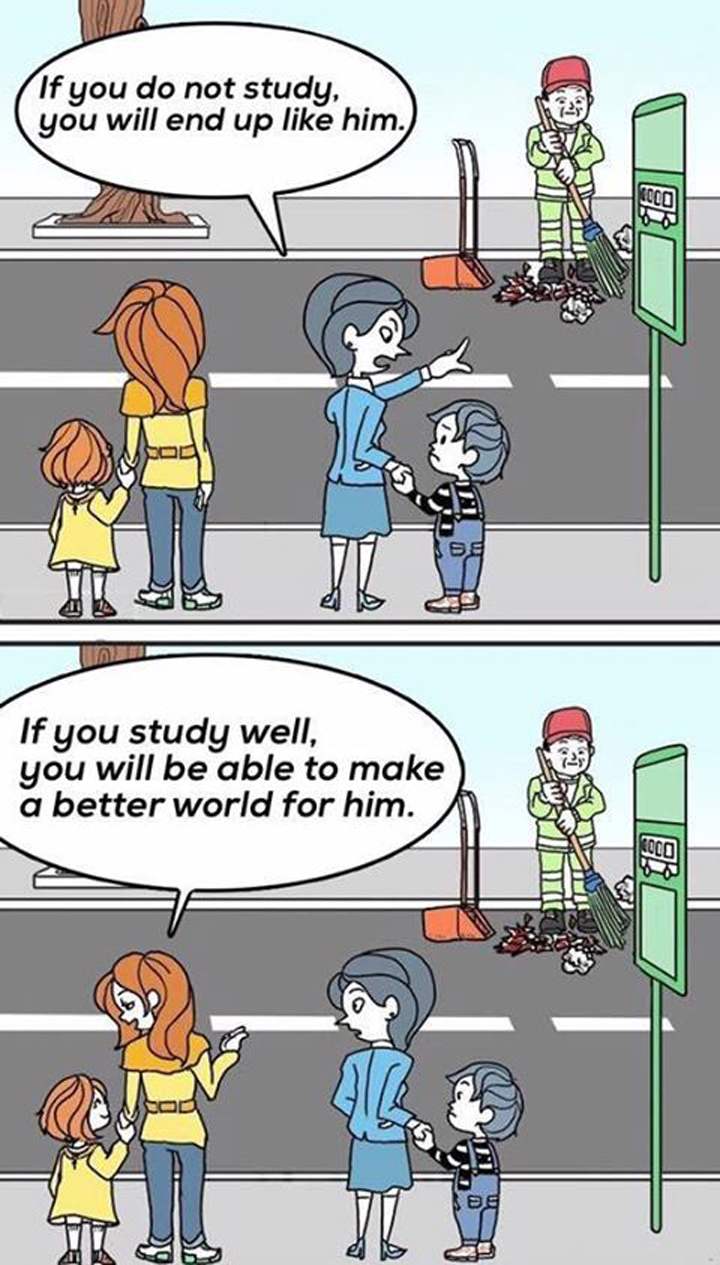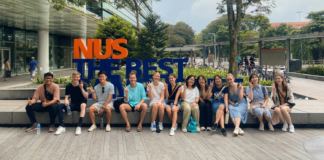Ex-MOE Policy Maker’s Criticism Of Our Education System Is Well-Placed But We Think It’ll Be Ignored
The argument about the place of elitism in our education system has been hard to escape in recent weeks.
In letters to the newspapers and online commentaries, it seems that everyone has an opinion about:
- whether elitism is a problem
- how to tackle said problem
Joining that list this week is a man who claims to be a former Ministry of Education policy officer, Mr Yann Wong.
In a Facebook note titled “We’re Not Free to Define ‘Elitism’ As We Please“, he captured the attention of local intelligentsia by sharing his concerns about the impact of meritocracy and elitism on Singapore’s students.
Mr Wong adds a refreshing facet to the argument, by focusing on the students themselves and not some abstract concept.
But are his points as novel as they seem – and w
We break it down after the jump.
https://www.facebook.com/notes/yann-wong/were-not-free-to-define-elitism-as-we-please/10155542204141302/
DSA for context
Mr Wong begins his note by recounting the promise of the Direct School Admission (DSA) scheme, spearheaded by then-Education Minister Tharman Shanmugaratnam in 2004.
Hailed as a way of promoting diverse measures of merit, the policy was extremely successful and adopted by many schools.
But Mr Wong says that its success has only been skin-deep. He writes,
Ask any teacher, parent or student about whether DSA has REALLY changed their definition of merit … you would almost certainly get a good laugh in return.
His point? Efforts to redefine merit haven’t been successful after 14 years, so what makes you think it’d be so easy to redefine elitism?
Mr Wong’s comments are likely a response to recent efforts by some to rebrand Raffles Institution as elitist, but not in the traditional sense of the word, which connotes wealth and power.
Instead, some have tried to rebrand RI as elite because of its students who excel in both curricular and co-curricular activities.
But Mr Wong’s note isn’t concerned with their efforts.
As mentioned earlier, it offers an opinion into how students are affected by all this elitism-meritocracy talk we keep engaging in.
1. Students’ self-worth determined by how well they do, not who they are
Mr Wong says that our performance-centric system does not validate students for being “just themselves”.
Instead, students “can only feel validated by their performance” in examinations and Co-Curricular Activities (CCA).
This causes much anxiety for high performing students, and shame for students who fail.
In a strongly-worded statement, he points out that be it “performance anxiety” or “validation-neediness”,
It is about time our schools own up that their own classroom practices damage the mental health of children.
2. A condescending culture
Mr Wong also opines that the nature of our education system breeds a culture of condescension .
He highlighted the sense of entitlement among the system’s winners to “condescend those who are less successful than” them.
A less-discussed implication of this was that those less successful “cannot blame other people for condescending” them.
To illustrate his point, Mr Wong cites a comic shared by former Minister for Education Ng Chee Meng.
In the comic, a seemingly good character actually smacked of condescension, according to Mr Wong.
He writes,
A truly admirable mother would befriend the road sweeper together with the child, and teach the child to treat him with as much dignity and respect as she should any other adult.
Although both Minister and comic had meant well, it was clear that dignity is not accorded in equal amounts to different people, because of our elitist and meritocratic markers of success.
In fact, in Singapore, we do not accord people with “inherent worth and dignity”.
Even more worrying is that not everyone gets the opportunity to earn a sense of dignity because of systemic inequality.
3. On intellectual conformity and a lack of critical thinking
Mr Wong points out that the reason “why education reform (to be less exam oriented) has largely failed over the past 20 years” is because critical thinking seems to be suppressed in school.
One one hand this suppression has been caused by “students’ need to conform to ‘one correct answer'”.
On the other hand MOE has been overly high handed about “perpetuat[ing] certain national narratives as unquestionably true”.
He says that if students were to be taught to think critically, they must be allowed to question national narratives, including “politically contentious ones like Operation Coldstore“.
To Mr Wong, students must appreciate the “complex situations in real life where there can be ‘no right answer'”.
But right now, students are not trained to do so, and this has a lasting impact well into adulthood.
Hence, mindsets about education remain unchanged and the strong emphasis on performance in schools continues.
Why we don’t think Mr Wong will be heard
Mr Wong makes some salient points about our education system – even going so far as to offer solutions to undo some of the damage done.
The fixes, he says, lie in a radical overhaul of our education system.
But a more pertinent question that Mr Wong and others who share his views need to ask is if Singaporeans actually want the education system to be radically overhauled.
Answering this is tricky, with the answer you get often dependent on who you ask.
For instance, among my peers, there’s generally an understanding of the shortcomings of our system. But we tell ourselves, “What doesn’t kill you makes you stronger. If I could go through that system, why can’t the next generation?”
Attitudes like this are largely unhelpful in any kind of policy debate, since they cling on to the status quo.
But the fact that we are still facing the status quo after all these years suggests that policymakers believe that that is the politically expedient thing to do.
For decades, our education system has been our pride and joy – a symbol of Singapore’s success to the world.
To step out and say “It worked then but it won’t work anymore” would be ballsy – but also a highly risky move, potentially alienating thousands of voters.
On the surface at least, Singapore has talked tough about doing what is right and not what is popular.
But dig a little deeper and you’ll find a Government is afraid of alienating people with its policies (see: 377A).
So press on, Mr Wong – you’ve certainly started an important conversation.
The next step? Getting the right people to join in.
Featured image from HSK Centre via Connect to India and Facebook

Drop us your email so you won't miss the latest news.










